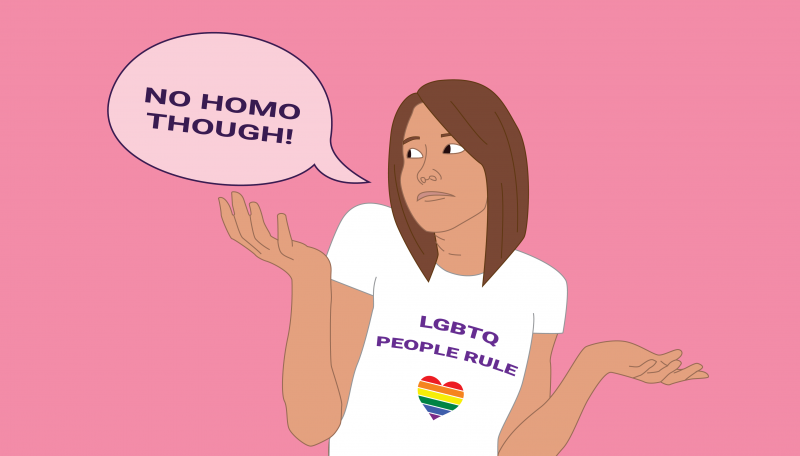Pride comes around each year as a way to recognize the LGBTQI+ community. It is celebrated in the month of June as a way to honor the 1969 Stonewall Uprising that took place in Manhattan, New York.
However, 2019 marks 50 years since members of the LGBTQI+ community fought back against police at the Stonewall Inn; and as a result, launching what is today known as the LGBTQ rights movement. Over the years, there has been a significant improvement in the legal and social protections that LGBTQ people have access to. This includes rights to same-sex marriage, employment security and the right to hold universal celebrations like Pride.
It’s important to note that Pride still remains pertinent well into the 21st century because there is still a lot of discrimination and injustice directed at LGBTQI+ people worldwide. On May 30, two women were the subject of a homophobic attack on a night bus in London. The pair was violently beaten by a group of teenagers, which goes to show that hate crimes still exist.
According to the BBC, attacks on the LGBTQ community have almost doubled since 2014 which means there’s still a lot of work that needs to be done regarding the safety of LGBTQI+ people.
As for the history of the LGBTQI+ rights movement, the Stonewall Uprising became a pivotal turning point for the Gay Liberation Movement that took place in the United States in ‘69. What initially started as a one-day celebration known as “Gay Pride Day,” which took place on the last Sunday in June, quickly developed into a month-long series of festivities.
Nowadays, Pride Month consists of parades, parties, concerts, you name it. Nevertheless, it is also a time to remember those who lost their lives to hate crimes or to HIV/AIDS. Overall, Pride Month leaves an impact on everyone, shining light on those who belong to the LGBTQI+ community and how they’ve influenced individuals on a historical, national, and international scale.
Despite the fact that Pride appeals to all audiences, it is important to remember that it was not born out of the desire to celebrate, but rather to demonstrate for the equality and inclusion of LGBTQI+ people. The movement stemmed from a demand for equal rights, which has evolved into a festival celebrated globally in the past 50 years.
People mustn’t forget that this battle for acceptance isn’t over. Individuals from the LGBTQI+ community face challenges when it comes to living openly in society – especially Transgender people. Their emotional, physical, and professional well-being is in a constant state of jeopardy. But with more and more LGBTQI+ people showing the courage to live as openly as they wish, we will soon see a true step forward in accepting who others are. Their bravery sets an example to all.
Not too long ago, there was controversy surrounding the fact that certain straight people questioned the need for Pride even wondering why there aren’t any “Straight Pride” parades/celebrations. This goes to demonstrate that some people may not fully comprehend the history surrounding Pride and that it didn’t start out as sunshine and rainbows.
Furthermore, when straight people question the need for Pride, it indicates a lack of recognition towards a minority group that continues to face a multitude of challenges. This was seen in the violent murders of transgender women, among other examples.
The bottom line is that the LGBTQI+ community has shown so much resilience and progress in spite of these hardships – which is something that needs to be celebrated. Pride is an incredible opportunity for everyone to come together in solidarity, and reflect on the history of the LGBTQI+ movement.
Graphic by Victoria Blair
